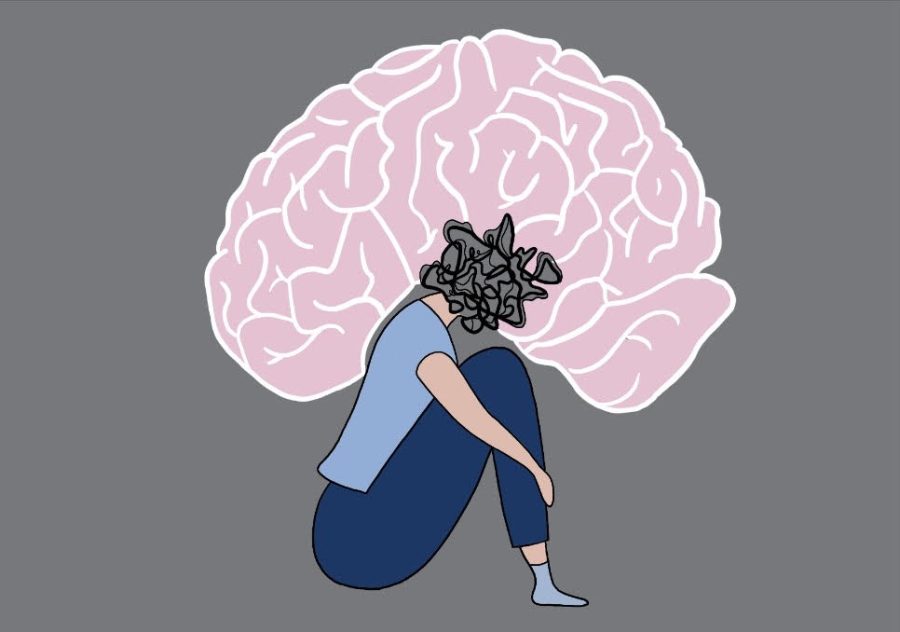Teen Mental Health & Relationships
May 20, 2022
In the 21st century, mental health and depression have become big problems within our population. More specifically, our teenage population. Seven-in-ten U.S teenagers said that depression and anxiety majorly impact their daily lives. While our relationships definitely impact our mental health, it is important to remember that our mental health can impact how we connect with others and how we develop relationships. Especially as teenagers, it’s hard to learn how to form healthy and happy relationships with mental illness getting in the way. Mental health problems such as depression and anxiety can influence whether someone feels able to interact and connect to others.
With social media playing a big role in the recent spike of mental health cases in teenagers, it has caused bigger issues in our everyday life. Building trust is a key factor to a stable relationship, but for people with anxiety disorders it becomes almost impossible to do so because they can overthink everything and put themselves in a depressive state. By making themselves think that only the worst can come of this or that they cannot trust their partner is rooted from social media. With all of the photoshop and filters it’s hard to know what to believe. Teenagers are so easily influenced and they have started to pull things from online and apply it to their everyday lives–which is not always a good thing. People with mental illnesses are so easily influenced or tricked and with these kids being so young they let it take over and ruin the only things that actually matter.
Post-traumatic stress disorder, major depressive disorder, generalized anxiety disorder, and alcoholism are all major disorders that can affect a teenagers world. Whether it’s the kid, a family member, or a partner, mental health can affect many different types of relationships. Not only can it affect their relationship with others, but it can largely affect their relationship with themselves. Mental health is one of the leading factors in teenagers’ confidence and self esteem. 75% of teens with low self-esteem reported engaging in negative activities like cutting, bullying, smoking, drinking, or disordered eating.
In my own personal experience, having a family member who struggles with BPD and anxiety and much more, it is unbelievably hard to watch them go through these things and not know how to work through them. Lots of teenagers don’t know how to control or live with these disorders and they let it take over their whole lives just because they don’t have the tools to help them. Yes, schools have small programs and guidance counselors, but they almost baby us and don’t help the way they need to. They tell us to breathe or take a walk or get a glass of water when we are clearly struggling. We are still growing and we don’t have the tools to not let it take over. It may sound dramatic, but the consequences of failing to address adolescent mental health conditions extend to adulthood, impairing both physical and mental health and limiting opportunities to lead fulfilling lives as adults.
Seeing a family member or friend struggle with their mental health and not knowing what to do is a horrible feeling. Suicide is the fourth leading cause of death among 15-19 year olds, you’d think we’d be doing more. We should have more programs or activities not only to help people personally struggling with mental health, but for their loved ones who want nothing more in the world than to be able to help. Globally, one in seven 10-19-year-olds experiences a mental disorder, accounting for 13% of the global burden of disease in this age group. That statistic is way too high especially for such a young age group.
Mental health is a big factor in the growth and everyday life of teenagers in the 21st century. It affects their relationships not only with others but also with themselves. We need to teach them how to cope with these disorders as best as possible as well as teaching their loved one how to comfort and help them through these hard feelings and thoughts.








